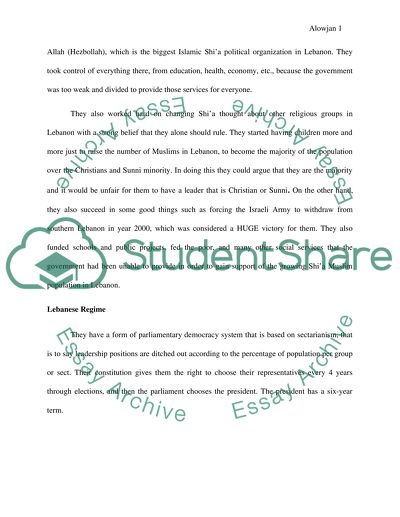Cite this document
(“How religious conflict lead to the weakness of government in Lebanon Essay”, n.d.)
Retrieved from https://studentshare.org/history/1497883-how-religious-conflict-lead-to-the-weakness-of-government-in-lebanon
Retrieved from https://studentshare.org/history/1497883-how-religious-conflict-lead-to-the-weakness-of-government-in-lebanon
(How Religious Conflict Lead to the Weakness of Government in Lebanon Essay)
https://studentshare.org/history/1497883-how-religious-conflict-lead-to-the-weakness-of-government-in-lebanon.
https://studentshare.org/history/1497883-how-religious-conflict-lead-to-the-weakness-of-government-in-lebanon.
“How Religious Conflict Lead to the Weakness of Government in Lebanon Essay”, n.d. https://studentshare.org/history/1497883-how-religious-conflict-lead-to-the-weakness-of-government-in-lebanon.


